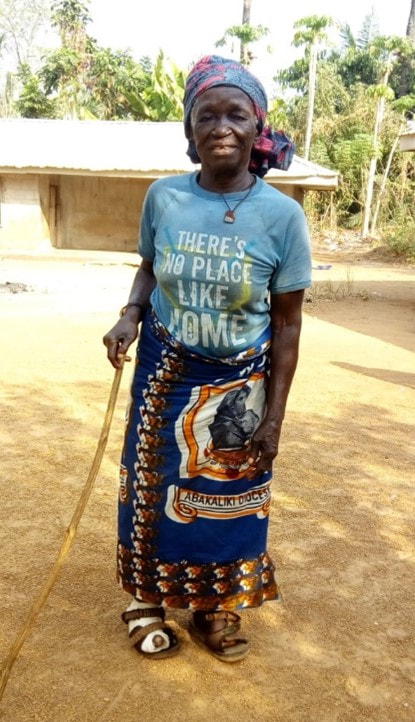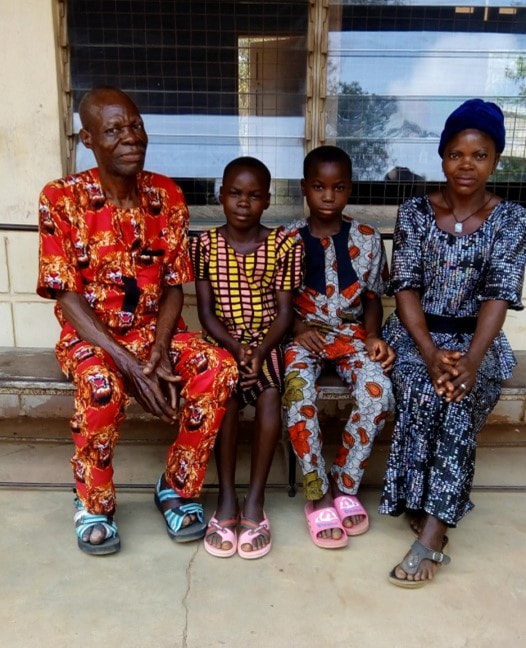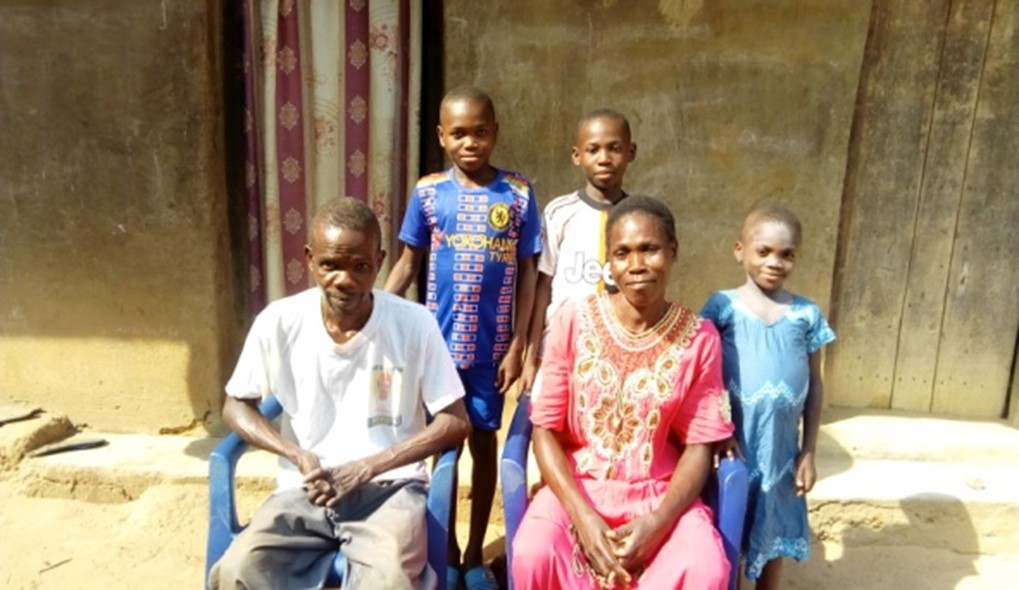Helping overcome discrimination and rejection in Nigeria
St Patrick’s Hospital at Mile Four, Ishieke, Abakaliki, in partnership with SFLG, plays a vital role in supporting leprosy sufferers who would otherwise be stigmatised and abandoned by the people they love.
St Patrick’s Hospital at Mile Four, Ishieke, Abakaliki, in partnership with SFLG, plays a vital role in supporting leprosy sufferers who would otherwise be stigmatised and abandoned by the people they love.
|
Philomena (aged 73, lives at Mile Four Leprosy Community)
Philomena was a newly married 21-year-old when she first noticed some strange symptoms. She already had a daughter, and she was hoping to have more children. She developed patches on her abdomen and blisters on her fingers. The patches turned into a rash, which spread around her body. It was later confirmed in hospital that it was leprosy. Philomena knew that her community would not accept her with this disease, so she decided to get treatment. Sadly, Philomena’s worst fear came true when her husband rejected her due to her leprosy and left her with her daughter. Luckily, St Patrick's was able to provide all that she needed. As well as Philomena’s treatment and surgery, St Patrick's continues to provide her with a house, food, clothes and toiletries. She has also been given a patch of land so that she can continue to farm with the help of some farming expenses. She comments that she would be “a dead person” without their support. Philomena hopes that they will build her a house in her hometown, so that she might one day leave and return to her home. St Patrick's also treated her daughter for leprosy, ensuring that she can live her life free from the stigma that this disease can sadly bring. . |
She said: I want people to know that leprosy is curable."
|
Mathew (aged 57, living at Four Mile Leprosy Community, staff quarters)
At 28 years old, Mathew began to notice strange patches on his body and swelling on his ears and lips. Up until this point, he had been a very successful stone mason. He was dreaming of building his own house and then training his children. When one of his fellow workers made a joke about him looking like someone with leprosy, Mathew went to St Patrick's, where doctors confirmed he did have the disease. On hearing this news, Mathew felt that his life was over, and worse, even considered taking his own life. But he credits St Patrick's with saving him, saying that they are “my second God, the one I see.” As well as treatment, St Patrick's has provided food, clothes and toiletries. Crucially, they trained him as a cobbler, and he now mends the shoes of other residents at the community. St Patrick's provided accommodation and helped Mathew to get married. He has since been able to fulfil his wish to have children. Mathew states that "without St Patrick's I would have died since, because even my father wished me dead. When he learnt that I had leprosy, he rejected me “. He hopes St Patrick's will help him build his own house at his father’s compound and help him educate his children. |
Mathew says leprosy is curable and people should not discriminate (against) persons (sic) affected by leprosy.”
|
Uko (aged 52 living at Ohatekwe Ishieke Ebonyi LGA)
In 1999 when he was 30 years old, Uko was a textiles trader dreaming of marrying and running a successful business. His symptoms began as patches all over his body, and a loss of feeling in his hands and feet. People told Uko he may have leprosy and he was told where to go for treatment. He feared that he would not get better and struggled to understand why this was happening to him. But Uko was treated by St Patrick's and provided with food. They also trained him in shoemaking and built a home for him in his hometown. |
Uko hopes St Patrick's will continue to provide equipment to help him sustain his shoemaking business. He plans to train his children in shoemaking so that they too can have an occupation and secure their future.
Uko wants to tell the world that “Leprosy is curable and they should not discriminate (against) people affected by leprosy.”






